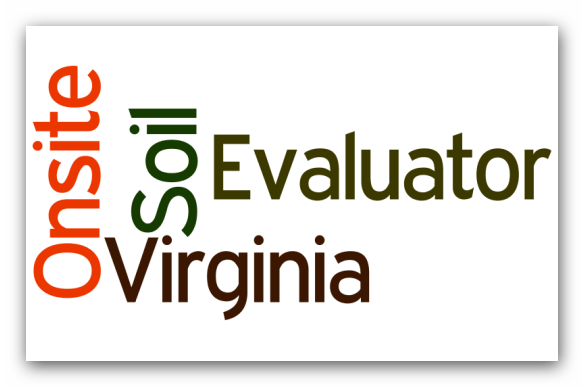File Number 2012-00348 (link to document)
"If you only believe that you're an artist when you have a big advance in your pocket and a single coming out, I would say that's quite soulless. You have to have a sense of your own greatness and your own ability from a very deep place inside you. I am the one with the litmus test in my hands of what people need to hear next."
Lady Gaga


4 comments:
I do believe that once an EHS gets their panties in a wad about a private sector AOSE they can and do make that AOSE's life a living hell. But after reading all the items listed for each of the denied permits it seems that there may have been some legitimate problems with those premits. I do not agree with the fact that evidence prior to licensure was used against her. A lawyer could probably help with that issue. One big issue I have with denials and using them as possible evidence against an AOSE is that EHS AOSE's never receive denials. It would be in every private sector AOSE's best interest to start using FOIA and pulling EHS AOSE permits, doing private reviews and keeping record of all infractions.
Unfortunately, the respondent agreed to the terms of this Consent Order before it was made available for public comment. In my opinion, DPOR's investigative procedure in this case does raise some professional questions and concerns.
Determination of what constitutes a "pattern of incompetence" and the proper evidence used to establish it should be uniform for all regulants.
Especially regarding denial letters, something is definitely wrong with the current regulatory framework if evidence that can be prepared against one regulant cannot even be provided against another.
Despite the high minded intent of self-regulation, no regulant should have to be spending their weekends preparing FOIA requests to analyze every potential error of other regulants just to achieve parity within the license.
As professionals, all regulants are expected to be performing to the same standard of practice.
Looks like this AOSE had a history of doing very poor work and continued to make a lot of "mistakes". As a private consultant, I feel that consultants like this make the AOSE profession look bad. This certainly doesn't help us argue our case for privatization of the design industry. This just gives Richmond more ammo for not privitizing.
All onsite professional licenses are as one without exception
under DPOR regulation. Gone are the days of us and them,
public and private. For the common good of the onsite industry,
we must all recognize and understand that there is one (1)
common license. With one license comes the expectation and
assurance to the public at-large that there is one (1)
standard of practice.
Professionalization of the onsite industry was mistaken in the
early stages, with an over-emphasis on the issues surrounding
privatization. Unfortunately, privatization alone failed to
encompass the long term purpose and effects of licensure standardization.
Protection of public health, safety, and welfare are all
domiciled within the house of licensure now and are quite
vulnerable without proper standardization. Consistency and
stability in the regulatory framework provide public benefit
by recognizing individuals as having the necessary knowledge
and skills to practice a given trade. Assurance can then be
afforded to the public by acknowledgement of a competent and
responsible work force.
The personal experience I gained from this report was one
of boundaries. It appears as if DPOR has set an irrational
litmus test for "patterns" and "standards". Some of the same
standards of which a large majority of regulants are failing
to comply with was just used to adjudicate another
professional there of. Opinions on "patterns" were rendered
in this case that appear to go beyond the authoritative reach
and scope of the Board. Judgment appears to have been handed
down without regard to the Board's regulatory framework or time-lines.
I do not think it is any person's desire or ability to judge
unless he or she actually heard all the facts. I would be more
than confident, there is another side to the "mistakes", but
maybe we have not had the opportunity or fortune of
obtaining such. In the mean time, I wish to request that ALL
licensed professionals reading this; Please, READ your
Board's Regulations. Nearly one month to the day, echoes still
resound through the Commonwealth as to the reported facts in this case.
Mistakes-yes, but more importantly was the quality and
quantity of the accusations. Now that I am sure you all have
read the regulations and DPOR complaint process, I will conclude.
Complaints can only be filed on a matter that occurred within
THREE (3) years of the alleged incident. Secondly, no records
should have been acknowledged prior to the enactment of a license,
for DPOR had no jurisdiction. In reality, this leaves us with a Board
decision to adjudicate on 3 counts of what ever you like....
Three counts that established a "pattern" now seems like a different picture
and yes, I am sure ANY practicing professional has seen at least three (3)
counts of any issue in a regulatory review(s) over the course of their career.
Standardization will help regulators provide a more consistent review
and allow ALL regulants to practice on common ground. One standard
and one practice under one license will allow all regulants to
provide the proper assurances for the public that all work is
being provided by responsible professionals.
Jim S...
Post a Comment